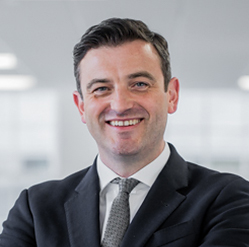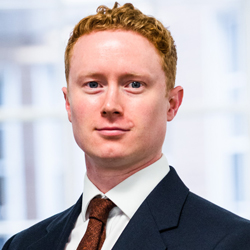Thu, 13 Jan 2022
David Tyack QC, Henry Pitchers QC, Esther Gamble and Oliver May will present a webinar on Friday 21 January 2022 at 12:30-13:30 to discuss the implications of this decision. As ever, our speakers will invite questions on the day. However, if you wish to submit any questions for David, Henry, Esther and Oliver to consider in advance you will have this opportunity during registration via the questions box. As many as possible will be answered on the day.
Today the Court of Appeal handed down judgment in the conjoined cases of Purchase v Ahmed, Polmear v Royal Cornwall Hospital NHS Trust and Paul v Royal Wolverhampton NHS Trust. Four barristers from No5 Chambers appeared: David Tyack QC and Esther Gamble for the claimant in Purchase and Henry Pitchers QC and Oliver May for the claimants in Polmear.
The cases concern the recoverability of damages by secondary victims of clinical negligence (formerly known as “nervous shock” claims). In particular, where a claimant witnesses the horrifying death of a loved one as a result of a clinical breach of duty which occurred days, weeks or months earlier, should they be entitled to compensation?
Sir Geoffrey Vos, Master of The Rolls, held that it is hard to see why a gap in time between negligence and a horrific event should affect the defendants’ liability. He rejected the submissions of counsel for the claimants in Paul and counsel for the Defendants in all three claims, that a secondary victim should only recover damages if the horrific event is the first manifestation of damage or the damage completing the cause of action, stating that either requirement would lead to unprincipled and complex factual disputes, and would result in an illogical solution.
He stated that on considering and applying the relevant House of Lords authorities, “If one were simply considering these requirements and applying them to the clinical negligence situation, I think one would say that, despite the fact that the horrific event took place later than the defendant’s misdiagnosis: (a) the fact and consequence of the defendant’s negligence (i.e. the event or accident causing the horrific event) was close in time and space to the moment when the secondary victim was caused the psychiatric injury, and (b) the secondary victim was either personally present at the scene of the horrific event or accident or was in the more or less immediate vicinity and witnessed the aftermath shortly afterwards.” In other words, the requirements laid down by the House of Lords would be satisfied in these cases.
He stated that “If I were starting with a clean sheet, I can quite see why secondary victims in these cases ought to be seen to be sufficiently proximate to the defendants to be allowed to recover damages for their psychiatric injury.”
While the reasoning of Vos MR was broadly aligned with the submissions of No5 counsel, he found that the Court was bound by the earlier decision of the Court of Appeal in Taylor v A Novo. He went on to find that the ratio of the earlier decision in Novo was that, in order for a secondary victim to succeed, the horrific event cannot be separate in time from the negligence. He therefore found that the claims in this appeal had to fail.
The Master of Rolls went on to state that he had reservations about whether Novo correctly interprets the limitations on liability to secondary victims set out in House of Lords authorities, and that it is for the Supreme Court to decide whether to depart from the decision.
Lord Justice Underhill, Vice-President of the Court of Appeal (Civil Division) and Lady Justice Davies concurred, with Underhill LJ adding:
“if the point were free from authority I would be minded to hold that on the pleaded facts the Claimants in all three cases should be entitled to recover.” He went on to note that the issues merit consideration by the Supreme Court.
As a result, the Claimant’s appeal in Purchase failed and the Defendants’ appeals in Polmear and Paul succeeded, but with doubts remaining as to the correctness of the decision in Novo. The Claimants have sought permission to appeal to the Supreme Court.
Watch this space for more updates!






